If you want to get the money out of politics, vote in congressional elections
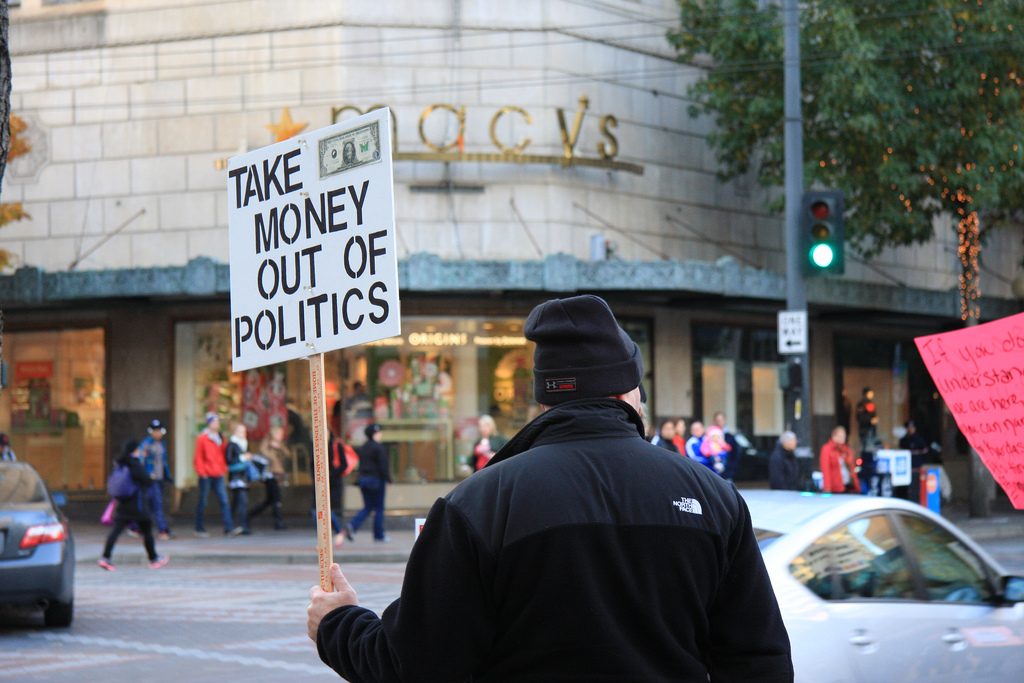
I talk to people all the time about politics and one of the things I hear most often is: “We need to get the money out of politics.” Everyone seems to have ideas how to stop this, ranging from third parties to repealing Citizens United to the “small government” ideas of libertarians.
While researching voting recently, I stumbled across a great report by the U.S. Bureau of the Census on voting in congressional elections that suggests one of the big reasons our government works for the wealthy is that the wealthy vote.
Here’s a look at the statistics, and why more people voting could go a long way toward reducing the influence of money in politics.
Voting in congressional races by age
The first chart shows the historical rates of voting in congressional elections (non-presidential) from 1978-2014.
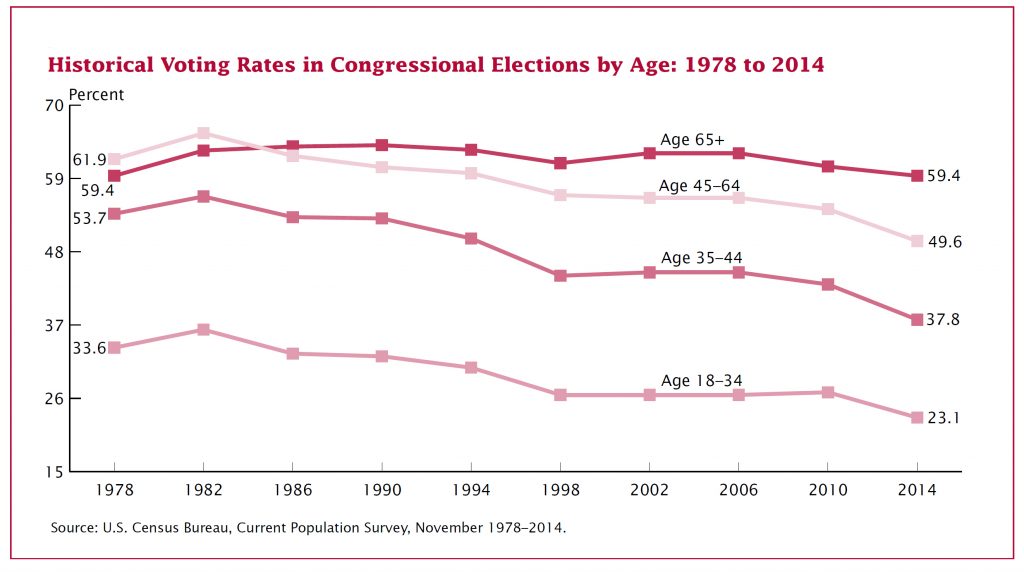
Imagine if more young people voted?
Age tends to lead to increases in wealth and earnings, so what we see are the people who make the most money and wealth voting.
If more young people voted, it would reduce the influence of money in politics.
Voting in congressional races by race and ethnicity
The second chart looks at voting by ethnicity during congressional elections over the same period of time.
Black and especially Latino voters tend to vote at lower rates than white voters.
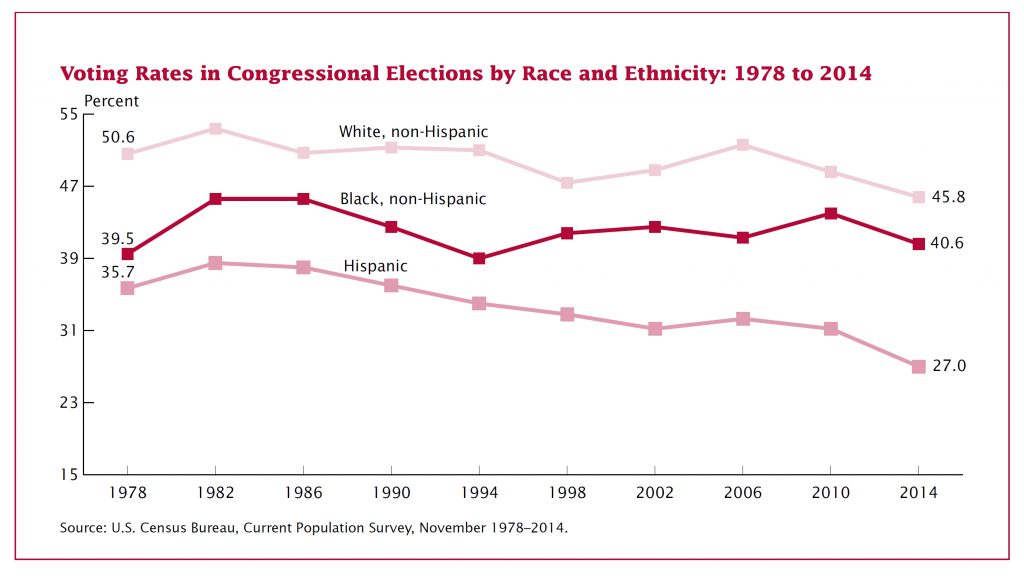
Increasing the rates of Hispanic and Black voters would reduce the influence of money in politics.
Because there tend to be wealth and wage gaps between white voters and black/Latino voters, these voting patterns favor money in politics.
If more black and Latino people voted, it would help check the influence of money in politics.
Age distribution of the voting population
The next chart looks at age distributions in elections from 2004 to 2014, including presidential elections. This is another way to slice the data to look at trends.
The first thing that stands out in this graph is that the largest voting group is from 45-64 years old. This is because this group, which includes a large segment of the baby boomers, is the largest portion of the electorate.
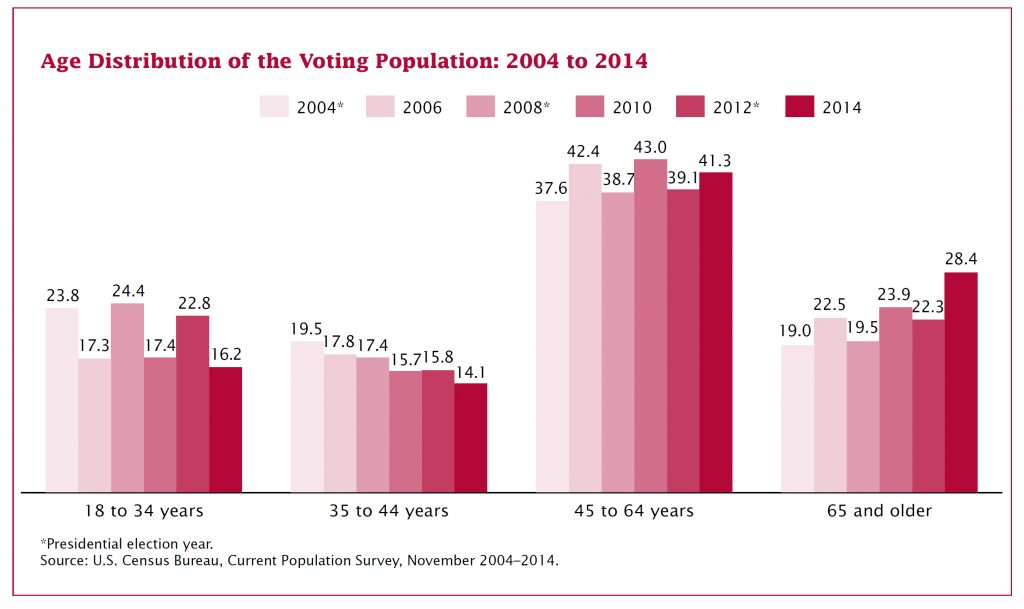
The elderly are voting more while the young are voting less.
This chart also illustrates how those over age 65 are voting more, and those younger than 44 are voting less.
These trends favor money in politics. Once again, if more young people voted, it would help check the influence of money.
Comparisons to the voting population
By comparing a group’s share of the voting population to their share of the voting-eligible population, we can see how a given group is voting relative to their eligibility. If a group accounts for both 50 percent of the population and 50 percent of the voting population, then the group is voting evenly with their eligibility.
If we look at race, what we see is that white voters are voting above their eligibility and Latino voters are voting below their eligibility.
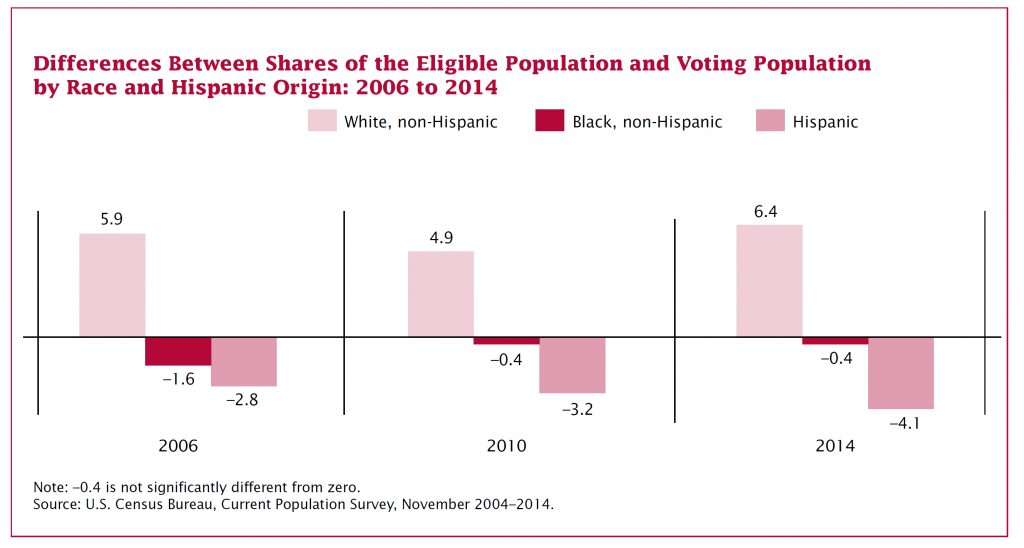
Encouraging for black voters, not so much for Hispanic voters.
Similarly, we can compare age groups to voter eligibility.
What we see here is that young people vote way below their eligibility, and older voters vote above their eligibility.
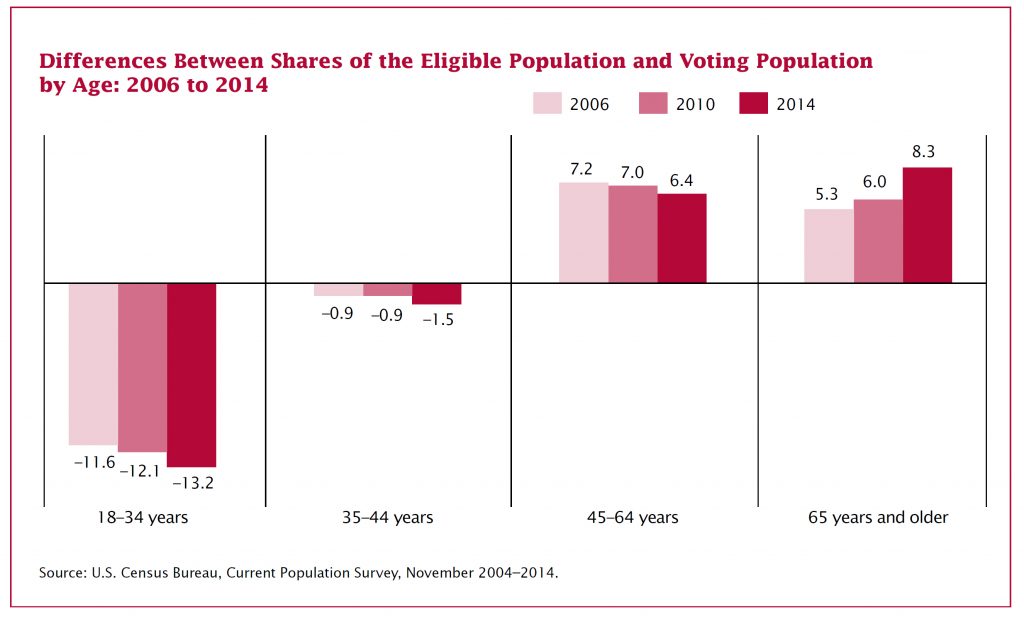
This chart illustrates the youth voting gap.
Summary
The report lists these as some of the top conclusions:
Voting rates were highest for Americans 65 years and older, non-Hispanic Whites, individuals with high levels of education, and those with relatively high incomes.
In addition, it especially highlights the gap in youth voting and says that this is true even when you account for aging population:
In recent elections, voting rates have been low among young people and high among older Americans. These results are not the product of the American population aging as a whole, as both the low level of engagement among young people and the high level of engagement among older Americans have increased in recent congressional elections, even after accounting for changes in age distributions.
When I talk to people under 45, I increasingly hear a couple of things. One is that people want to get the money out of politics. And two is there’s a frustration with the current system that they don’t feel voting addresses. They don’t feel that their vote matters.
Statistically, voting matters. Small changes in voting percentages can have significant impacts. This is why conservatives spend so much time trying to turn out their older, wealthier white base and work to make it as hard as possible for everyone else to vote. If young people, Latinos, and black people voted more in congressional elections, it would go a long way toward checking the influence of money in politics.
Cross posted at Daily Kos.
David Akadjian is the author of The Little Book of Revolution: A Distributive Strategy for Democracy (also available as an ebook).










